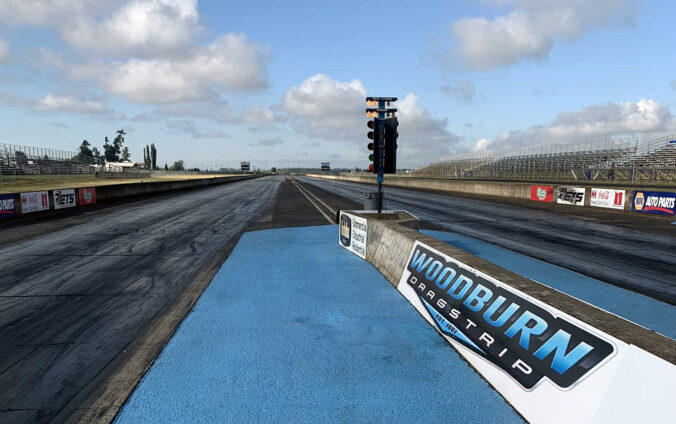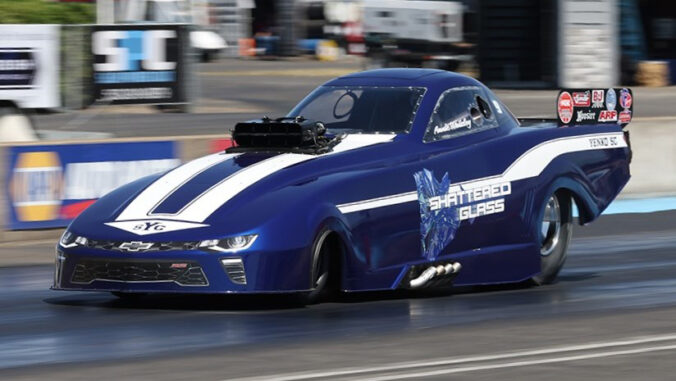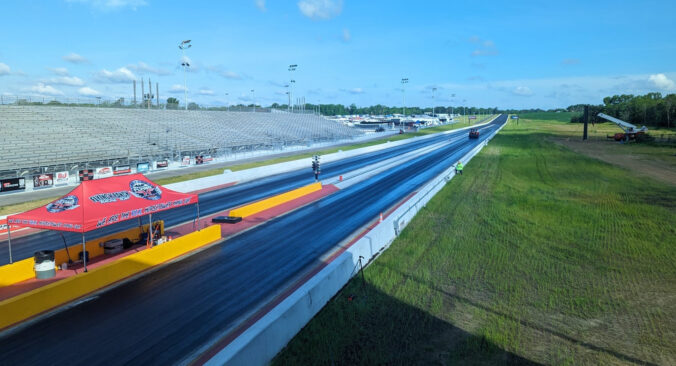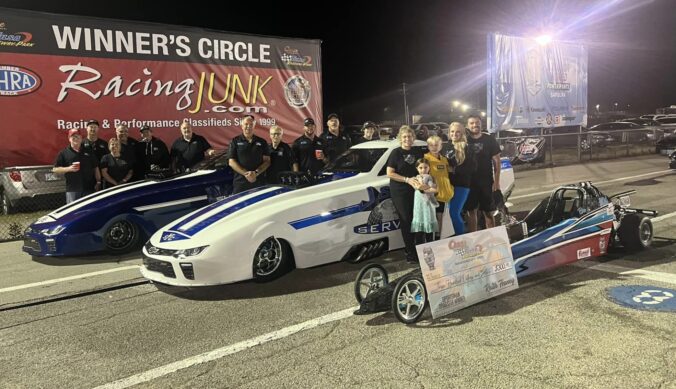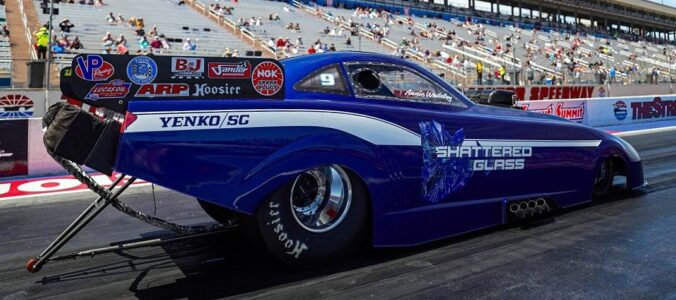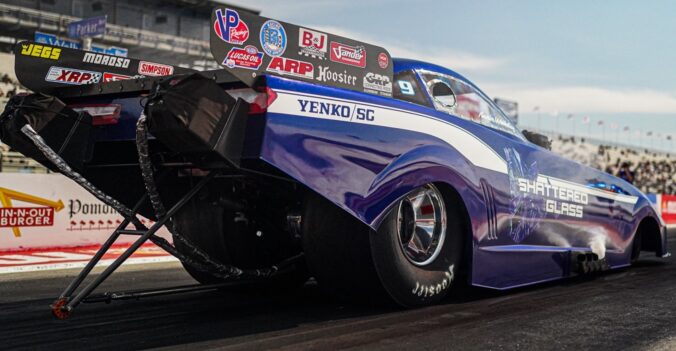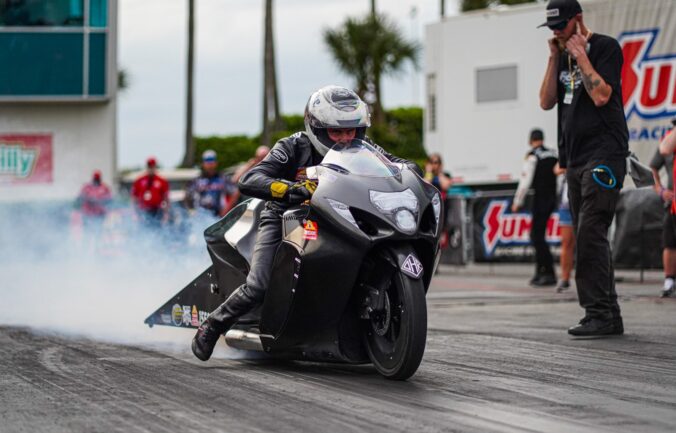It was one 5.46 after another for Annie Whiteley at the NHRA Northwest Nationals, where she won in 2015 and nearly did again last year. The first one, a 5.469, came right off the trailer Friday morning, and she got only quicker from there with an even better 5.465, her quickest run all year, at 270.05 mph (top speed of the meet) that afternoon.
Following a shut-off 10.48 at 114 mph on an aborted shoot-for-the-moon blast Saturday morning in last-ditch qualifying, Whiteley’s J&A Service/YNot Racing team was back in the 5.40s with another 5.46 that evening in the first round – right when it didn’t matter. It came on a bye she earned by qualifying No. 1, so any old run would have been more than enough to win.
Sunday in the semifinals, when all four cars ran in the 5.40s, Whiteley missed what would’ve been a fourth 5.46 by the closest possible margin – one-thousandth of a second – with a 5.470 that left her just short of Brian Hough’s nearly identical 5.48. Nine-thousandths of a second quicker at the Tree or on the quarter-mile and Whiteley, who finished second to outgoing world champion Doug Gordon here last year, would’ve been part of the first all-female final round in Top Alcohol Funny Car history. (Gordon’s daughter, rookie phenom Maddi Gordon, went on to beat Hough in the final and became the 100th different woman to win an NHRA national event.)
With an .088 light Whiteley wasn’t exactly late, but if she’d had another .077 like she did on her first-round single, or Hough had had another .121 like the one he had last weekend at Woodburn, where she left on him and beat him in the first round, and she’d have been in her 22nd career national event final. “With this two-step, you really want to get in there first,” she said. “Hough always used to want to stage last, but now he always wants to go in first – everybody who has a two-step does. That is a crappy way to lose, but the guys really have the car running good right now.”


